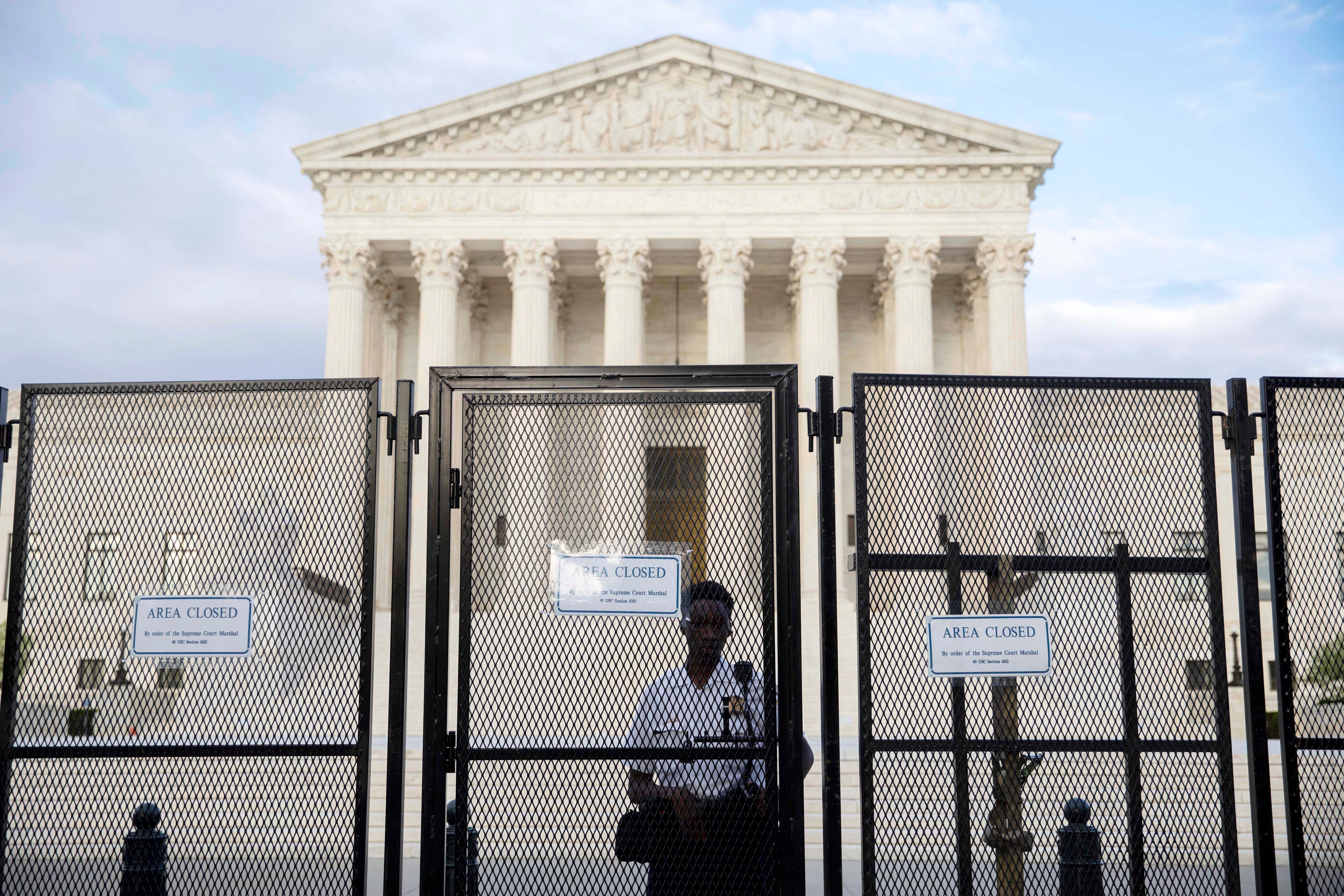Supreme Court restricts prisoners’ ability to show attorneys were incompetent in death penalty cases
‘To put it bluntly: Two men whose trial attorneys did not provide even the bare minimum level of representation required by the Constitution may be executed because forces outside of their control prevented them from vindicating their constitutional right to counsel,’ Justice Sonya Sotomayor writes in dissent

Your support helps us to tell the story
From reproductive rights to climate change to Big Tech, The Independent is on the ground when the story is developing. Whether it's investigating the financials of Elon Musk's pro-Trump PAC or producing our latest documentary, 'The A Word', which shines a light on the American women fighting for reproductive rights, we know how important it is to parse out the facts from the messaging.
At such a critical moment in US history, we need reporters on the ground. Your donation allows us to keep sending journalists to speak to both sides of the story.
The Independent is trusted by Americans across the entire political spectrum. And unlike many other quality news outlets, we choose not to lock Americans out of our reporting and analysis with paywalls. We believe quality journalism should be available to everyone, paid for by those who can afford it.
Your support makes all the difference.The Supreme Court on Monday granted the State of Arizona’s request to bar death penalty defendants from bringing new evidence showing their attorneys were incompetent when challenging their convictions in federal court and ruled that federal courts considering habeas corpus petitions in death penalty cases “may not conduct an evidentiary hearing or otherwise consider evidence beyond the state-court record based on the ineffective assistance of state postconviction counsel”.
All six Republican-appointed justices voted to reverse rulings by Arizona federal judges and the Ninth Circuit Court of Appeals which had allowed David Martinez Ramirez and Barry Lee Jones to present evidence supporting claims that the attorneys who had their handled post-conviction appeals in state courts had been so ineffective that their right to counsel under the Sixth Amendment to the US constitution had been violated.
Writing for the court’s conservative majority, Justice Clarence Thomas wrote that the Antiterrorism and Effective Death Penalty Act, a 1996 law which had severely restricted death penalty defendants’ ability to challenge their convictions in federal court, barred Martinez Ramirez and Jones from presenting claims that they failed to present in state courts.
Justice Thomas’ opinion effectively repudiates the court’s ruling in Martinez v Ryan, a 2012 case in which justices had ruled that federal courts could hear claims of ineffective assistance of counsel “if, in the initial-review collateral proceeding, there was no counsel or counsel in that proceeding was ineffective”.
“The question presented is whether the equitable rule announced in Martinez permits a federal court to dispense with [the AEDPA’s] narrow limits because a prisoner’s state postconviction counsel negligently failed to develop the state-court record. We conclude that it does not,” Justice Thomas wrote. He further explained that the court’s precedents and the AEDPA require ineffective assistance during post-conviction appeals to be “attributed to the prisoner,” not the prisoner’s attorney because “there is no constitutional right to counsel in state postconviction proceedings,” adding that allowing federal courts to hear new evidence would be “an affront to the State and its citizens who returned a verdict of guilt after considering the evidence before them”.
Writing for the herself, Justice Stephen Breyer and Justice Elana Kagan, Justice Sonya Sotomayor wrote that the court’s decision “will leave many people who were convicted in violation of the Sixth Amendment to face incarceration or even execution without any meaningful chance to vindicate their right to counsel” and chastised the majority for “all but” overruling two prior cases that had recognised “a critical exception “to the general rule that federal courts may not consider claims on habeas review that were not raised in state court”.
“This decision is perverse. It is illogical: It makes no sense to excuse a habeas petitioner’s counsel’s failure to raise a claim altogether because of ineffective assistance in post- conviction proceedings … but to fault the same petitioner for that postconviction counsel’s failure to develop evidence in support of the trial-ineffectiveness claim,” she wrote.
Justice Sotomayor added that the record of Martinez and Jones’ trials and post-conviction appeals had “illustrates the breakdown in the adversarial system caused by ineffective assistance of counsel” in violation of the Sixth Amendment, and said the majority had adopted an “irrational reading” of the AEDPA while having “understate[d], or ignore[d] altogether, the gravity of the state systems’ failures in these two cases”.
“To put it bluntly: Two men whose trial attorneys did not provide even the bare minimum level of representation required by the Constitution may be executed because forces outside of their control prevented them from vindicating their constitutional right to counsel,” she wrote.
The Independent and the nonprofit Responsible Business Initiative for Justice (RBIJ) have launched a joint campaign calling for an end to death penalty in the US.. The RBIJ has attracted more than 150 well-known signatories to their Business Leaders Declaration Against the Death Penalty - with The Independent as the latest on the list. We join high-profile executives like Ariana Huffington, Facebook’s Sheryl Sandberg, and Virgin Group founder Sir Richard Branson as part of this initiative and are making a pledge to highlight the injustices of the death penalty in our coverage.
Join our commenting forum
Join thought-provoking conversations, follow other Independent readers and see their replies
Comments